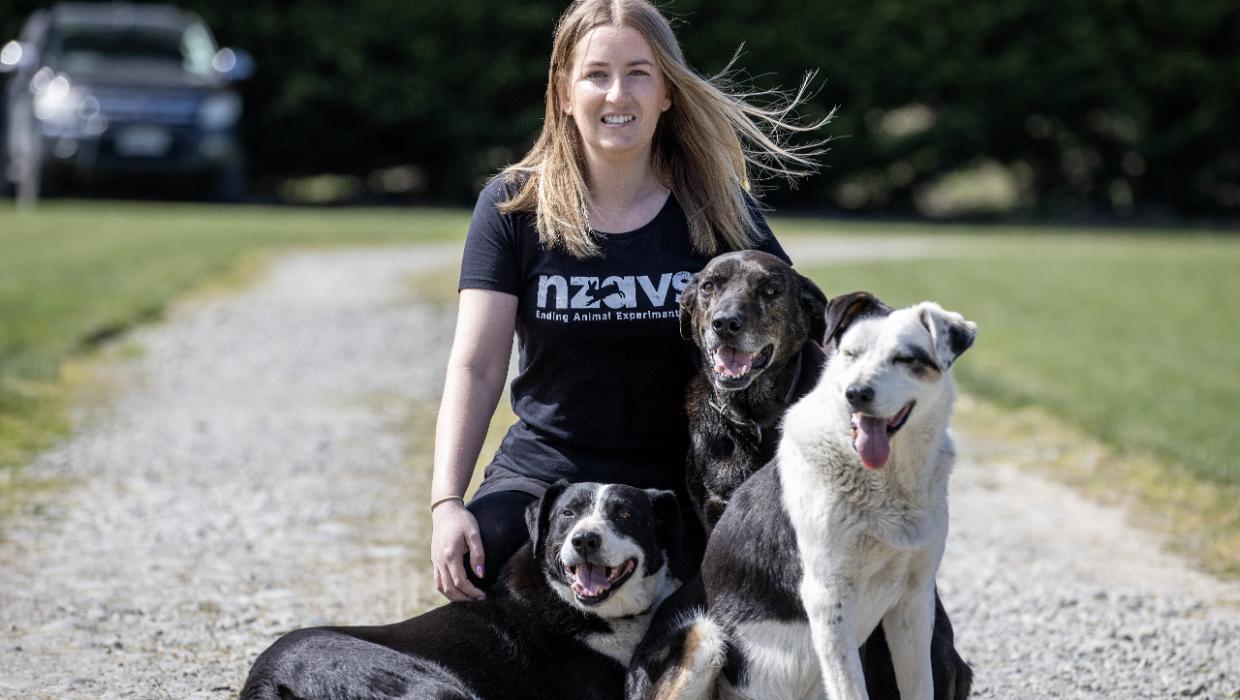Science
Anti-Vivisection Group Allocates $50,000 for Animal Testing Alternatives

A prominent anti-animal experimentation organization, the New Zealand Anti-Vivisection Society (NZAVS), is launching a $50,000 grant to foster research into alternatives to animal testing. The initiative aims to significantly decrease the number of animals used in research, with the ultimate goal of eliminating harm or death to these animals entirely.
Researchers widely welcome this initiative, acknowledging their shared goal of reducing animal usage while emphasizing that animal testing remains vital for scientific advancements. “Nobody wants to use animals for research,” said Jodi Salinsky, an animal welfare officer at the University of Auckland. “We do it because we believe that it is necessary to move forward research that is beneficial for humans, the animals, or the environment.”
Funding for Alternatives in Aotearoa
The NZAVS grant aims to support one or two research teams in developing methodologies that could replace animal testing. Salinsky described the grant as an “extremely positive and proactive way to work with the research community,” highlighting a mutual desire for progress in both animal welfare and scientific discovery.
Despite the positive intentions behind the grant, Salinsky noted that the absence of dedicated public funding for animal alternatives in Aotearoa poses a significant challenge. The principles of the 3Rs—replacement, reduction, and refinement—guide ethics committees in approving research projects, yet funding for alternatives remains scarce. “It’s really appreciated that NZAVS would facilitate a grant for tertiary organizations, especially helpful in such a tough research funding environment,” she added.
According to the Ministry for Primary Industries, over 300,000 animals were used in research in New Zealand in 2023, a slight decrease from 324,395 in 2000. Among these, 45,344 animals were killed for tissue use, while 81,443 died or were euthanized during or after experimentation.
Encouraging Innovation in Research
Jade Pengelly, executive officer of NZAVS, expressed hope that the grant would encourage innovative approaches that could lead to a significant reduction in animal usage in scientific research. Preference will be given to proposals that demonstrate long-term impact, such as curriculum reform or policies aimed at phasing out animal use permanently.
Michael Pankhurst, a senior lecturer and researcher at Otago University and board member of the Australia and New Zealand Council for the Care of Animals in Research and Teaching, noted the grant’s potential to catalyze meaningful change. He believes that supporting development for alternative methods could benefit the broader research community.
Pankhurst’s laboratory employs a combination of techniques, including animal studies, cell cultures, computer modeling, and human studies utilizing blood samples and donated tissues. While he acknowledges the increasing use of alternative methods, he also points out that cutting-edge technologies, like organoids and organ-on-a-chip models, come with high costs and limited funding.
He warned against the complete replacement of animal testing in the near future, stating, “By using a range of technologies, overall, this leads to a lower requirement on animal use, but there are still some things that we cannot do without live animal experimentation. I don’t see us completely replacing animal experiments within our lifetime. Without them, we’d be missing out on a lot of important discoveries.”
The application process for the grant is now open and will close in January 2024, marking a significant step toward reducing animal testing in New Zealand. The research community eagerly anticipates the innovations that may emerge from this funding initiative.
-

 World1 week ago
World1 week agoPrivate Funeral Held for Dean Field and His Three Children
-

 Top Stories2 weeks ago
Top Stories2 weeks agoFuneral Planned for Field Siblings After Tragic House Fire
-

 Sports3 months ago
Sports3 months agoNetball New Zealand Stands Down Dame Noeline Taurua for Series
-

 Entertainment3 months ago
Entertainment3 months agoTributes Pour In for Lachlan Rofe, Reality Star, Dead at 47
-

 Entertainment2 months ago
Entertainment2 months agoNew ‘Maverick’ Chaser Joins Beat the Chasers Season Finale
-

 Sports3 months ago
Sports3 months agoSilver Ferns Legend Laura Langman Criticizes Team’s Attitude
-

 Sports1 month ago
Sports1 month agoEli Katoa Rushed to Hospital After Sideline Incident During Match
-

 World2 weeks ago
World2 weeks agoInvestigation Underway in Tragic Sanson House Fire Involving Family
-

 Politics2 months ago
Politics2 months agoNetball NZ Calls for Respect Amid Dame Taurua’s Standoff
-

 Top Stories2 weeks ago
Top Stories2 weeks agoShock and Grief Follow Tragic Family Deaths in New Zealand
-

 Entertainment3 months ago
Entertainment3 months agoKhloe Kardashian Embraces Innovative Stem Cell Therapy in Mexico
-

 World4 months ago
World4 months agoPolice Arrest Multiple Individuals During Funeral for Zain Taikato-Fox





















